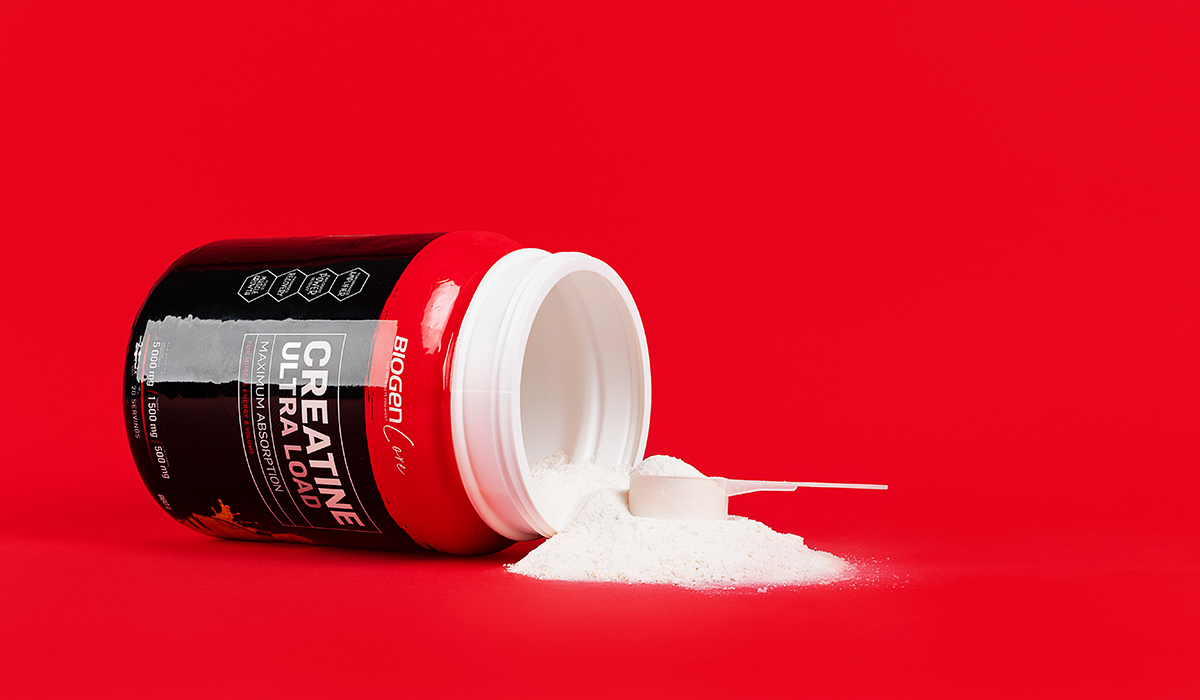
Creatine is one of the most extensively studied nutritional supplements available to athletes at every level
Creatine offers anyone who is serious about their exercise performance and gains a cost effective product relative to its many benefits.
Here are 4 reasons to include a creatine supplement in your plan.
How creatine works
Our body uses the phospho-creatine (PCr) we get from food and supplements to support adenosine triphosphate (ATP) production – the body re-synthesises it by adding a creatine molecule to adenosine diphosphate (ADP) – to produce the energy needed to fuel short and intense muscle contractions.
With a limited amount of creatine stored in our muscle cells (the primary storage site in the body), a boosting creatine stores with a supplement can deliver various physical and performance benefits.
And studies1 affirm that supplementing with creatine can increase the intra-cellular levels of creatine and PCr in muscles.
Creatine monohydrate is the most common form of creatine available today, and it is considered by many to be the most effective. The powder found in products like Biogen Creatine Monohydrate is basically creatine bound with water – each molecule is made up of 88% creatine and 12% water.
Numerous studies2 over the last three decades have shown that creatine monohydrate supplementation for 4–12 weeks increases muscle creatine and PCr content by 20–40%.
And innovation in creatine supplement manufacturing is finding ways to further boost the effectiveness of this already potent supplement. For instance, Biogen Creatine Ultra Load has used the most cutting-edge scientific findings to produce a formulation that maximises creatine utilisation.
The phenomenal absorption rate is achieved through powerful insulin mimicking and potentiating components such as Alpha-lipoic Acid. The compound effect of these agents results in a far more efficient delivery system, amplifying ATP production and performance output of muscle fibres.
References:
- Creatine and Phosphocreatine: A Review of Their Use in Exercise and Sport. J Athl Train. 1997 Jan-Mar; 32(1): 45–51.
- Role of Creatine Supplementation in Conditions Involving Mitochondrial Dysfunction: A Narrative Review. Nutrients 2022, 14(3), 529; https://doi.org/10.3390/nu14030529.
- International Society of Sports Nutrition position stand: creatine supplementation and exercise. J Int Soc Sports Nutr. 2007; 4: 6. Published online 2007 Aug 30. doi: 10.1186/1550-2783-4-6
- Myoprotective Potential of Creatine Is Greater than Whey Protein after Chemically-Induced Damage in Rat Skeletal Muscle. Nutrients. 2018 May; 10(5): 553. Published online 2018 Apr 30. doi: 10.3390/nu10050553










